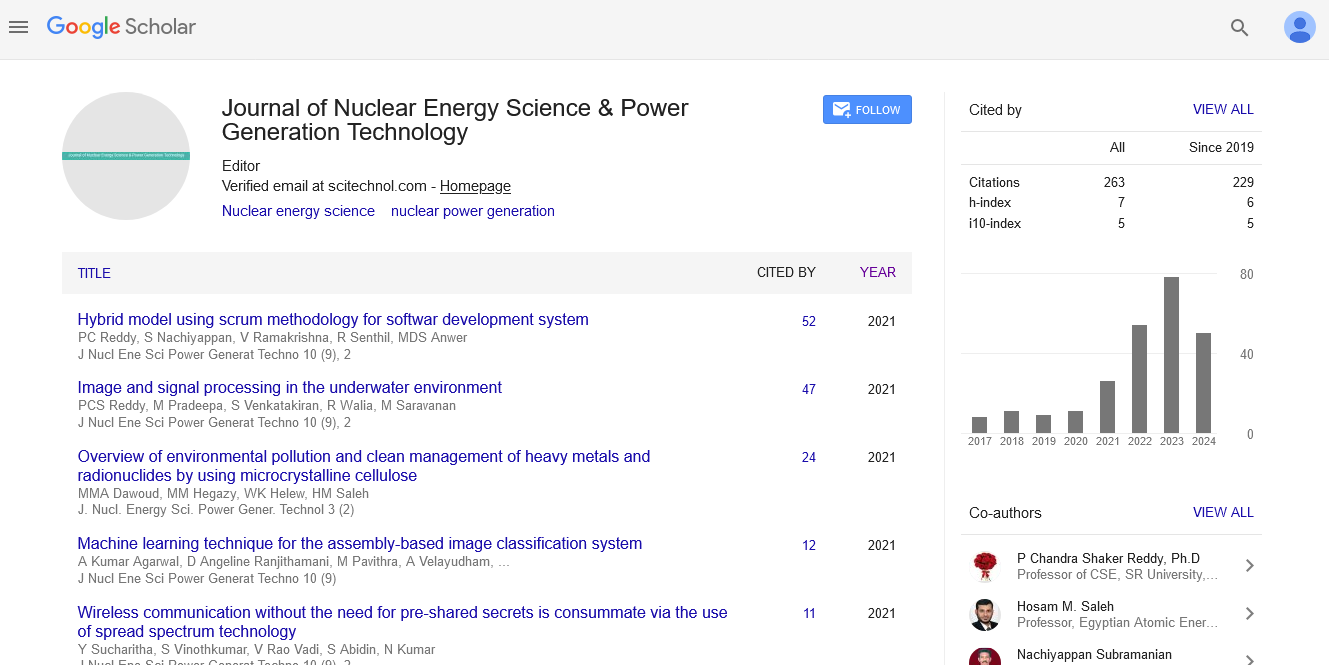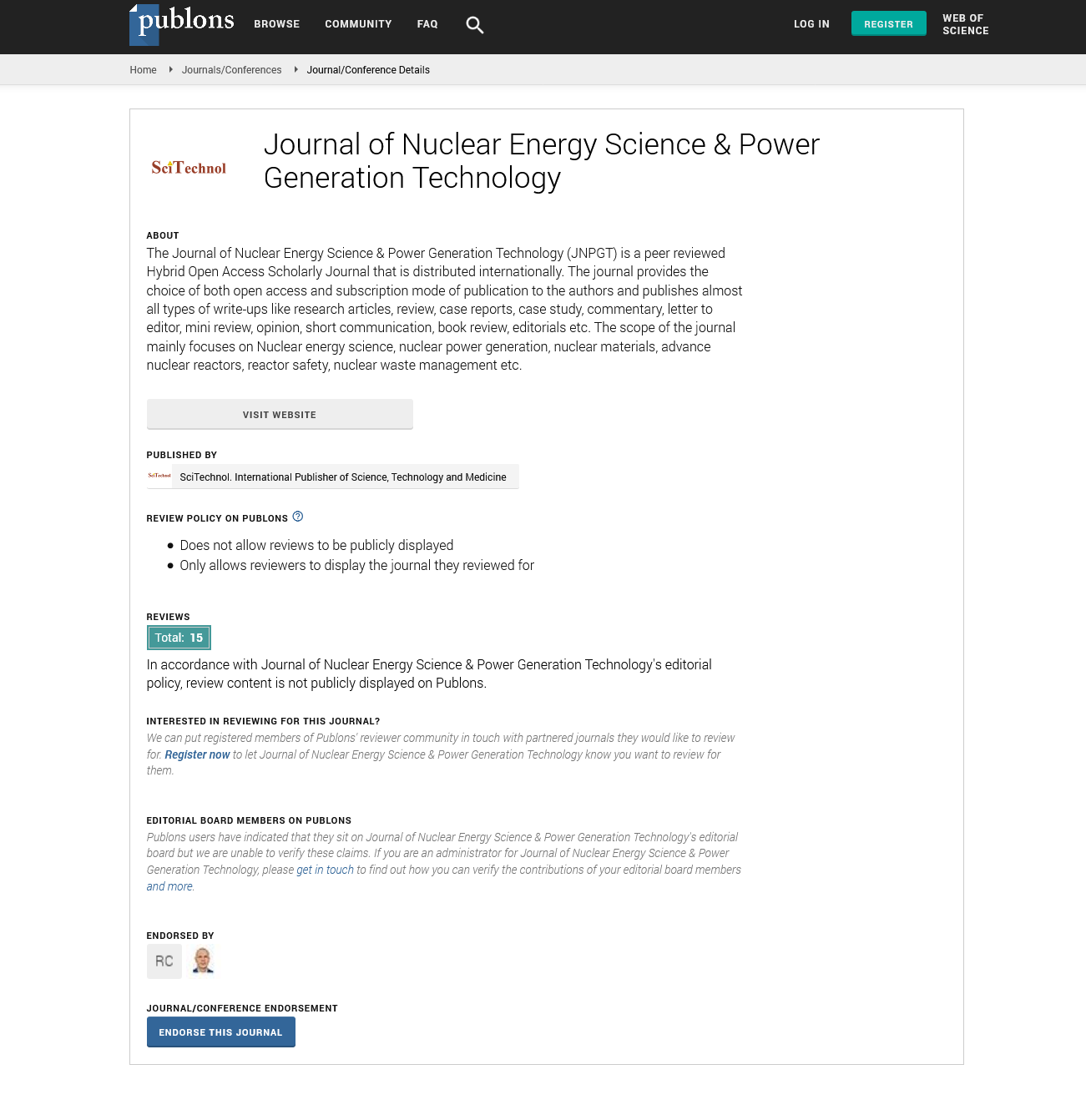Effect of dimension on characteristics and reliability of high voltage MOS transistors
Jone F Chen
National Cheng Kung University, Taiwan
: J Nucl Ene Sci Power Generat Technol
Abstract
High voltage metal-oxide-semiconductor (MOS) transistors have been widely used in smart power management applications because of their compatibility with standard complementary metal-oxide-semiconductor (CMOS) process. Because high voltage MOS transistors are operated under high voltage, the off-state breakdown voltage and on-state drain current are two key device parameters. In addition, hot-carrier induced device degradation is an important reliability concern. One key factor to affect the off-state breakdown voltage, on-state drain current, and hot-carrier induced device degradation is the dimension of the device. In this paper, the effect of device dimension on device’s characteristics and hot-carrier reliability in our high voltage MOS transistors is investigated. Figure 1 shows the schematic cross section of the Si-based n-type high voltage MOS Transistors examined in this paper, where three important layout parameters: Lgs, Lg, and Lgd are depicted. The device with typical dimension (device A) and three more dimensions (devices B, C, and D with individually shortening Lgs, Lg, and Lgd by 0.1 μm) as seen in Figure 1 are examined. The effect of varying Lgs, Lg, or Lgd on off-state breakdown voltage, on-state drain current, and hot-carrier induced device degradation are examined. It was found that shortening Lgs, Lg, or Lgd enhances on-state drain current but degrades hot-carrier induced device degradation. Both experimental data and technology computer-aided-design (TCAD) simulation results are analyzed to explain the underlying physical mechanisms. Our findings reveal that care should be taken in determining the device dimension because a tradeoff between on-state drain current and hot- carrier induced device degradation is observed.
Biography
Jone F Chen received PhD degree in Electrical Engineering from the University of California, Berkeley. He worked in the Department of Electrical Engineering and Institute of Microelectronics, National Cheng Kung University, Tainan, Taiwan for more than 15 years, where he is currently a Professor. He has published more than 50 papers in reputed journals.
Email: jfhen@mail.ncku.edu.tw
 Spanish
Spanish  Chinese
Chinese  Russian
Russian  German
German  French
French  Japanese
Japanese  Portuguese
Portuguese  Hindi
Hindi 

